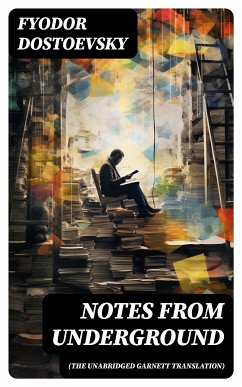In Fyodor Dostoevsky's seminal work, "Notes from Underground," the narrative unfolds through the fragmented consciousness of the Underground Man, an enigmatic antihero who grapples with alienation and societal disillusionment. Written in a confessional style, the novella serves as an exploration of existential themes, reflecting the moral and psychological dilemmas of mid-19th century Russia. Dostoevsky employs a first-person perspective, immersing readers in the irrationality and depth of human emotion, challenging the notion of rational self-interest prevalent in contemporary philosophical debates. The unabridged Garnett translation captures the nuances of Dostoevsky's prose, depicting the Underground Man's profound struggle against modernity and the constraints of society. Fyodor Dostoevsky, a central figure in Russian literature, experienced tumultuous periods of imprisonment and hardship, experiences that profoundly shaped his worldview. His encounters with poverty, exile, and existential despair inform the psychological depth of his characters. Dostoevsky's engagement with radical ideologies of his time, coupled with his deep Christian faith, presents a complex landscape of morality and human nature in his work. "Notes from Underground" is highly recommended for readers interested in existential literature and the human psyche. Its rich exploration of themes such as free will, morality, and the quest for identity continues to resonate, making this novella not only a cornerstone of literary history but also a profound reflection on the human condition.
Dieser Download kann aus rechtlichen Gründen nur mit Rechnungsadresse in A, B, BG, CY, CZ, D, DK, EW, E, FIN, F, GR, H, IRL, I, LT, L, LR, M, NL, PL, P, R, S, SLO, SK ausgeliefert werden.









